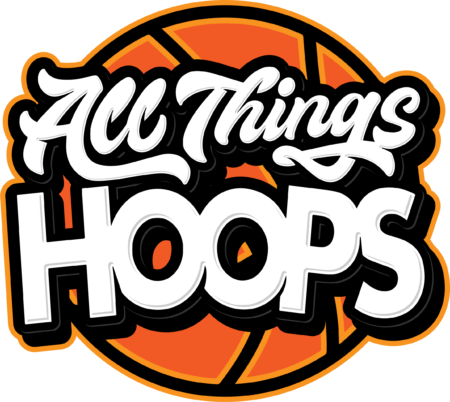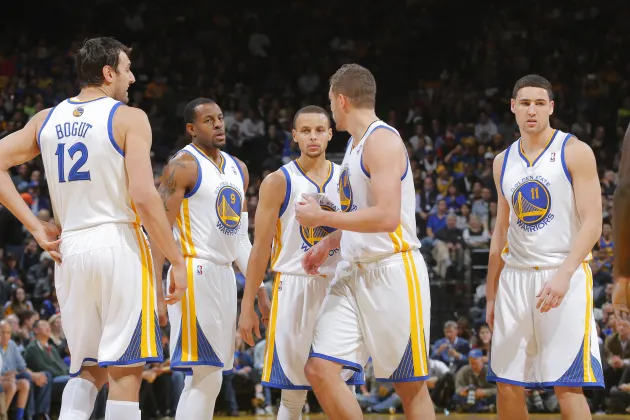NBA Dynasty: Which Are the Best Teams To Ever Play?
The National Basketball Association (NBA) is a treasure trove of extraordinary teams that have reshaped the game’s landscape. It is the birthplace of thrilling rivalries and iconic moments, all etched into the fabric of sports history. In this rich tapestry, few teams have managed to weave a spell so powerful that their dominance becomes a standard of excellence.
Throughout history, very few dynasties have been able to make an impact like the ones we will discuss; they represent the best of the best. As we prepare to experience another NBA Finals with two stellar teams, we look back and reflect upon the triumphs of some of the NBA’s greatest teams who helped shape that revered term “dynasty.”
The 2015-2016 Golden State Warriors
The 2015-16 Warriors made their mark in history by surpassing what many considered unsurpassable – the Chicago Bulls’ 72-10 single-season record. Led by the charismatic Stephen Curry, the Warriors went 73-9 and looked unbeatable during the season. They were most renowned for their accuracy from beyond the arc, particularly Curry and Klay Thompson, and exhibited exceptional ball movement. Each player knew their role and executed it flawlessly, including Draymond Green, who added a strong defensive element to the team.
After winning the championship the season before, the Warriors were stunned by Lebron James and the Cleveland Cavaliers in the 2016 NBA Finals. However, they then added Kevin Durant and rattled off two more titles in 2016-17 and 2017-18. The Warriors made it to the Finals for the fifth consecutive year in 2018-19 and then won a fourth championship in 2022, solidifying themselves as the greatest dynasty of this century.
The 1995-1996 Chicago Bulls
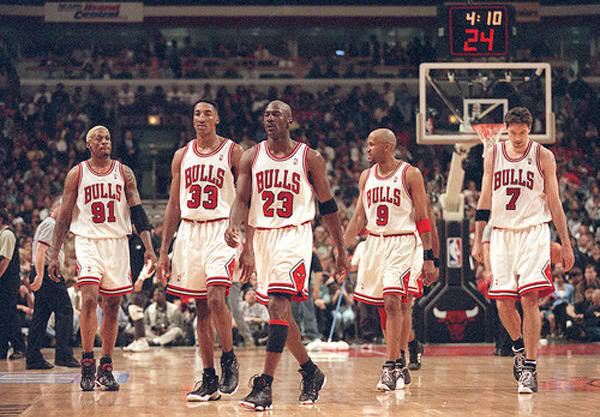
Photo courtesy of Basketball Society Online
You can’t speak of NBA dynasties and leave out Michael Jordan and the Chicago Bulls. Of their six NBA championships in the 1990s, the 1995-96 version was arguably the best. Led by Jordan, Scottie Pippen, and Dennis Rodman, the Bulls blitzed through the season and finished 72-10, at the time an all-time best. Their intimidating playstyle, bolstered by Jordan’s insatiable drive to win and Rodman’s tenacity on the boards, left opponents in awe.
The 95-96 Bulls went 14-1 in their first playoff games and 15-3 overall, eventually finishing off the Seattle SuperSonics in six games in the NBA Finals. It was their fourth NBA title in six seasons and would springboard them to two more championships in 1997 and 1998. The brilliance of Phil Jackson as a coach, coupled with what many consider the greatest player to ever compete in Jordan, resulted in a near-invincible team on the court. Jordan and the Bulls dynasty went 6-0 in the NBA Finals, and could have won more titles if not for Jordan’s brief 1994-1995 retirement when he transitioned to baseball and his second retirement after the 1998 season.
The 1971-1972 Los Angeles Lakers
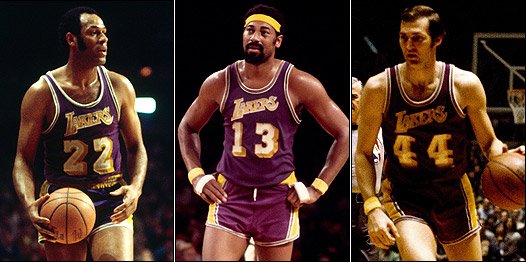
Photo courtesy of Essentially Sports
Stepping further back in time, the 1971-1972 Lakers stand tall among the league’s most remarkable teams. This Lakers squad, featuring titans like Wilt Chamberlain and Jerry West, decimated opponents, establishing a then-record of 69 victories in a single season. Their 33-game winning streak remains the longest in NBA history, is a testament to their relentless drive and cohesion. They coasted through the playoffs and then beat the Knicks in five games to win their first NBA title in Los Angeles.
But the Lakers’ dominance stretched well before the 1972 season; it was a title in the making. From 1962 to 1973, the Lakers appeared in the NBA Finals an astounding nine times. Chamberlain’s imposing presence in the paint and West’s unmatched court vision helped transform the Lakers into a juggernaut that finally got them over the hump in 1971-72. Coach Bill Sharman devised a master strategy that empowered each player to maximize their strengths, making the Lakers a spectacle on the court. This golden era of Lakers’ basketball etched a narrative of grit, passion, and unparalleled dominance, setting a paradigm of excellence in the NBA.
The 1985-1986 Boston Celtics
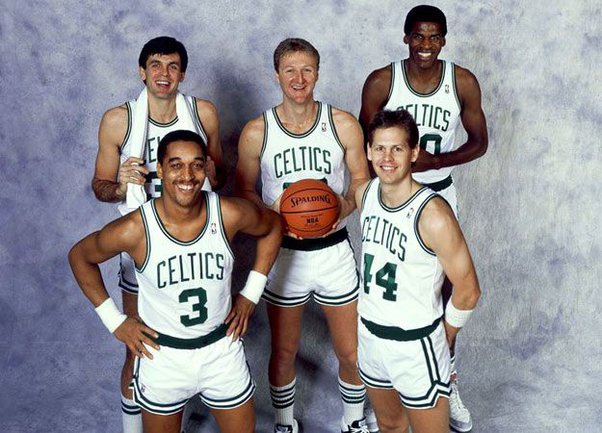
Courtesy of Quora
